Omaha: (402) 553-0900
Council Bluffs: (712) 256-0225
Lincoln: (402) 306-0937
Fremont: (402) 553-0900
Parts: (402) 553-0907
Check Out Some Frequently Asked Questions Related to Appliance Repairs
Same-Day Repairs | All Appliances | Licensed, Bonded, and Insured
Same-Day Repairs
All Appliances
Licensed, Bonded, and Insured
All the Information You Need for Appliance Repairs
- Are all your technicians licensed, bonded, and insured?
Yes.
- Is your trip charge included if I authorize the repair?
Yes, it is included in the overall cost of the repair as part of the itemized labor. Our trip charge includes the original and any future trips to your location, as well as the time involved in diagnosing your appliance problem. Our technicians have standardized labor, who guide us as detailed and exactly, what we charge for the total repair, including the trip. These prices are adjusted by the type of appliance due to the actual labor involved in diagnosing the problem. However, you will only pay this charge once. Please be advised that other appliance repair companies may say that they "waive" the trip charge if you continue with the repair. The truth is that they do charge you, but they include the trip charge into their labor cost. We don't have any hidden charges.
- Is my appliance worth repairing?
In general, it's far more economical and eco-friendly to repair an appliance than to replace it. Not only does throwing away an appliance create waste, but some of the materials in these appliances can be harmful to the environment. Furthermore, it incurs additional costs of delivery and installation.
Some businesses use their service departments as a sales tool and will often try to sell you a new unit regardless of the level of repair needed. We're not a sales-driven business, and we're realistic about the repair. We're a service business that has your best interests in mind, so you will trust our professionals in the future. We will give you an honest assessment of what we believe to be in your best interest. If we do find that it is best to replace the unit, you will be advised of this, and we will be happy to assist and educate you on your purchase.
If you are still not convinced of the right course of action, please know that older units tend to last much longer, even after a repair, than newer units. In the appliance business, they really don't design them like they used to.
- How much will it cost to recharge my refrigerator with Freon?
A refrigerator does not use up the refrigerant. The refrigerator is not like changing the oil in your car. If your refrigerator is low on refrigerant, you have a leak. So, if you have a leak, more refrigerants will not solve the problem. Please be aware it is illegal to add more refrigerant when you have a leak because the refrigerant is extremely harmful to the environment.
Furthermore, if you have a leak, your system will become contaminated. If left untreated, this contamination will eventually lock up your compressor and render your unit unusable, leading to extensive repairs.
So, if your refrigerator has stopped cooling properly, lack of refrigerant is probably not the issue.
- How much will it cost?
At this time, we can only give a quote for a repair after a technician has inspected and diagnosed the appliance in person. The only cost we can quote you before seeing and diagnosing your appliance is the trip cost, which is the one-time transportation and diagnostic charge. If you have any questions, we are more than happy to answer them.
If you know what part you need to replace before a technician comes to your location, we can quote you the price of the part, and we'll make sure that the technician has it with him when he arrives. Any additional labor charges are based on our printed national flat rate "Price Guide." The "Price Guide" is based on data accumulated over the last 60 years. The labor fee is provided to you upfront for your approval before the final work is started.
Please note that we can't warranty work based on someone else's diagnosis. If a part is returned, it will be subject to a 20-percent restocking fee. Electrical parts, if opened, are not returnable under any circumstances.
- My washer (or dryer) shakes a lot, and I'm worried it's going to shake away from the wall or cause damage to the floor. Is there anything I can do to fix this?
There are a number of things that could cause this problem, including, but not limited to overloading your washer/dryer. If the unit is problematic even with small loads, we recommend trying Kellett Shake Away™ pads.
- My washer is giving off an unpleasant smell. What can I do about this?
There are a number of causes. If you have a high-efficiency (HE) washer, most likely you're experiencing a build-up of detergent and dirt. HE washers don't use as much water, and therefore, can't wash out the tub as effectively. Bleach doesn't typically clear out this residue, so we recommend Affresh washer cleaning tablets, which are specifically designed to break up that residue and clean out your washer.
- What are safety must-haves in your home and are they important?
Yes, they're important. Safety is always first. A few must-haves are:
- Fire extinguishers, shut-off valves for gas appliances, current or new gas connectors, smoke detectors, and carbon monoxide detectors.
- If you're in doubt about the gas connectors, have them professionally inspected, as they could be extremely dangerous.
- A fire extinguisher should always be kept in the kitchen area at a minimum.
- Each gas appliance should have its own independent shut-off valve.
- Smoke detectors should be installed. Be sure to change the batteries in the spring and fall when you change the clocks.
- Monoxide detectors should also be installed in accordance with the manufacturer's instructions. Nighthawk™ brand with a digital LED display is a type of non-battery detector that re-samples the air in two-minute intervals to accurately log events that can prevent false alarms. Always place these in sleeping quarters, but never around items such as stoves, water heaters, and furnaces.
- Should I repair or replace my malfunctioning appliance?
Generally, older appliances are more durable and last longer than the newer products being made today. Modern models have wonderful features, but they do need more maintenance and repair than their older counterparts. It's wise to get an estimate for repair before replacing it. The general rule to follow is for the repair not to exceed 35-percent of the total replacement cost. The replacement cost includes the product, tax, delivery, and extraction of old appliances.
- The spring broke on my oven door. Do I have to get it repaired right away?
Don't ignore broken oven doors. Ovens are not furnaces and are not connected to a chimney to vent dangerous combustion gases outside. A broken door will not allow the oven thermostat to acclimate or shut off, so carbon monoxide continues to be produced from the continued combustion. A broken door seems minor, but it's potentially deadly.
- Is it really important to clean the condenser on my refrigerator?
Absolutely. Virtually all manufacturers recommend it be done once a year or more as noted in the owner's Care and Use Manual. It saves electricity, minimizes bio concerns, and ultimately helps extend the life and productivity of the refrigerator. We have a regularly scheduled service program for our customers to enroll in because it's that important.
- Why do my clothes take so much longer to dry than they used to?
Many times the problem is as simple as having the dryer vent cleaned properly and professionally. As well as being inconvenient, this build-up of lint is a potential fire hazard, and should not be taken lightly. Alternatively, there could potentially be a malfunction inside the dryer that is preventing the proper heat from being attained so the dryer should be inspected.
- My oven and cook-top knob will not turn. Should I force it?
No. If gas burner valves start grinding, turning hard, or breaking the knobs, we can often repair the valves before they require total replacement, if caught in time.
- Can bacteria really survive wash cycles in my washer?
Yes, unfortunately, it can. That's why it's important to understand the proper temperature activation and lifetime of the detergent you use. Check the soap manufacturer recommendations on the back of the box. Typically temperature activation is around 72 degrees Fahrenheit and the lifetime of the soap while sudsing is 15-20 minutes. Water temperature is important and shouldn't be ignored. Cold temperature setting refers to about 70-degrees Fahrenheit, not 40-degrees Fahrenheit. So in the winter, the cold water supply out can fall below activation temperature resulting in no cleaning action at all. A medium temperature may be needed in the winter. Also, after the laundry is completed, many experts recommend that you run an empty bleach cycle to kill the remaining potential bacteria, and then run an extra rinse cycle to get rid of the bleach fully.
For some extra advice on washers, we recommend never overload a washer. This puts stress on its motor and transmission. One time is enough to do irreparable harm. For example, imagine towing a semi-tractor with a Ford Escort. The Escort might survive that single event, but the stress has killed the life of the vehicle. Please remember that blue jeans and cotton towels are the "semi-loads" of the laundry world.
- My range keeps making a clicking sound even when I'm not using it. What should I do?
Immediately, unplug the appliance or turn off the power source at the fuse or circuit breaker. Then call for service. This's typically an electrical issue and if there's a possible spill, it's even more dangerous. Please call us for help.
- I burned popcorn in my microwave, and the smell won't go away. Can I get rid of the odor?
Yes, you can. According to Linda Cobb, the "Queen of Clean," place one-teaspoon of vanilla extract in a bowl and microwave for 30-seconds. Leave the microwave door closed for 12-hours. Remove the vanilla bowl and wipe down the inside of the microwave. The popcorn smell should be gone.
- My dishwasher works fine, but the inside is starting to look rusted. What do I do?
Linda Cobb, the "Queen of Clean," recommends filling both detergent cups with Tang™ Breakfast Drink and run through a normal cycle. When doing this, do not put detergent or dishes in the dishwasher. If rust is bad, several treatments may be required.
- Are there any foods that I should not put in my disposal?
Yes. Do not put bones or celery in your disposal!
- What are the best temperature settings for my refrigerator and freezer?
For maximum energy efficiency, keep your refrigerator between 36- and 38-degrees Fahrenheit. Your freezer should be between zero and five-degree Fahrenheit. If temperatures are kept 10 degrees lower than recommended, energy use can increase by as much as 25-percent.
- How do I put out a cooking fire in my kitchen?
Slide a pan lid over flames to smother grease or oil fires. Turn off the heat and leave the lid in place until the pan cools. Never carry the pan outside. Extinguish other food fires with baking soda. Never use water or flour on cooking fires. Keep the oven door shut and turn off the heat to smother an oven or broiler fire.
Important basics are to keep a fire extinguisher in the kitchen and keep working smoke detectors in your home and test them monthly.
Lastly, call the fire department if the fire continues uncontrolled. In many cases, calling 911 will give you emergency services.
- Are there recommended cleaning methods for cleaning my appliances?
Manufacturers and home repair and service professionals recommend the following practical tips to maintain and operate built-in appliances.
- Oven-Range-Cook-top - Clean the burners by hand, not in the dishwasher. Don't line the oven with aluminum foil, which may damage the oven's finish or result in improperly cooked foods. Never block the vents of a gas oven or range. Good ventilation is necessary in order to keep combustion levels operating properly. Clean the hood and grease filters every three months to provide proper ventilation and help prevent grease fires.
- Garbage Disposal - Always run cold water and be sure to let the water run until the disposal has shut off. Avoid overfilling the disposal with waste, and avoid putting onion skins, corn husks, or other fibrous food into it. Check for a potentially faulty condition if: (a) the bottom of a unit shows signs of rust (b) you see signs of water leaking under the sink (c) the circuit breaker trips continuously.
- Dishwasher - Run the dishwasher at least once a week to prevent seals from drying out and causing leaks. Check for signs of a potentially faulty condition, including (a) rush on rack seams and tub bottom (b) the door doesn't close properly (c) discoloration on the floor near the dishwasher.
- Do I need to clean the duct on my clothing dryer or is cleaning the lint filter between loads enough?
Clothes dryers are equipped with lint filters, which should be cleaned out after each use. However, particles of lint manage to get past the filter. Over time, lint accumulates in the venting system which will restrict airflow and consequently, will cause the dryer to work harder and eventually malfunction. Lint buildup is also a fire hazard. The dryer vents pipe should be made of either rigid or flexible aluminum tubing. White vinyl tubing is actually more prone to lint accumulation and should be replaced. This system should be cleaned professionally at least once a year. However, if you want to try to tackle this task yourself, you should do the following:
Begin by unplugging the dryer. If it's a gas dryer, turn off the gas supply. Pull the machine away from the wall, and vacuum behind and beneath it. Then, disconnect the duct from the back of the dryer, which is usually held on with a ring clamp or black duct tape. Using a crevice attachment, vacuum the dryers exhaust duct. If you have flexible aluminum tubing, vacuum it thoroughly, or replace the entire length. Rigid tubing should be disassembled, and each section cleaned by pushing a cloth through it. Then, reconnect all the pieces, reposition the dryer, and plug it in. And don't forget to clean out the exhaust hood mounted on the outside of your house.
- How do I get rid of odors in my refrigerator?
Different manufacturers have particular recommendations or solutions to remedy the problem.
Whirlpool
- Put coffee grounds in the refrigerator for a couple of days.
- Put wet newspapers in the refrigerator for a couple of days.
- Rub-down the walls with lemon juice.
Maytag
- Put activated charcoal in an unplugged refrigerator for a couple of days.
- Wash down with one cup of baking soda, mixed with one cup of water.
- Stuff crumpled newspaper in the unplugged unit.
General Electric
- Spray down unit with Smell BeGone.
Sub-Zero
- Flush drain tube with one cap full of bleach to three cups water. Then wash the unit down with soapy water and finally set a box of baking soda in the refrigerator.
Frigidaire
- Rinse unit with tap water & ammonia and then let it air out.
- Put a mixture of coffee grounds or coffee beans with one teaspoon of vanilla in a bowl in the refrigerator for 24 hours.
- Put a couple of pieces of newspaper in a bowl, and then add water and one teaspoon of lemon juice.
- A ballpoint pen exploded in my dryer. How can I remove the ink stain?
Try to remove the ink stain by one of the following methods or a combination of them:
Clean the area well with an all-purpose cleaner.
Spray with an aerosol laundry pre-soak, such as Spray n' Wash or Shout.
Rub gently with a light abrasive, such as SoftScrub. Then wipe off with a damp cloth and tumble-dry a load of rags at regular heat settings. At the conclusion of the drying cycle, some staining may still be visible, but it'll not transfer to any clothing.
If this is not satisfactory, replace the drum.
- I just bought clothes and put them in the washer. Now they are torn and damaged. Is there a problem with my clothes or my washer?
Fabric damage, holes, and tearing of faded or frosted fabrics (although a new purchase) may actually have abraded and partially worn-out.
Pre-stressed finishes include frosted. acid-washed, or stone-washed denim, sand-washed silk, or weathered knits.
Shorter agitation times and lower spin speeds can be used to prevent further damage to already weakened pre-stressed fabrics.
- I am seeing white residue on my clothes after I cleaned them. What is the problem?
White residue can be the result of unresolved detergent resulting from low water temperatures. The mix of hot and cold water for the "warm" setting may not be hot enough to dissolve some detergents, depending on the water heater thermostat setting, the distance between washer and heater, and pipe insulation. Consumers may use too many concentrated detergents. Most water heaters are factory preset at 120 to 125 degrees. With a 40-percent hot and 60-percent cold water mix, the warm-water wash will be 73 degrees. A hot-water wash should be 140 degrees, warm should be 110 degrees, and cold-wash water should be 80 degrees.
- Why is overloading a washer a problem?
Overloading the washer causes mechanical wear on clothing and produce lint. The wash load needs adequate water to properly circulate in the tub.
VISIT US
HOURS
HOURS
CONTACT US
Council Bluffs: (712) 256-0225
Lincoln: (402) 306-0937
Fremont: (402) 553-0900
Parts: (402) 553-0907





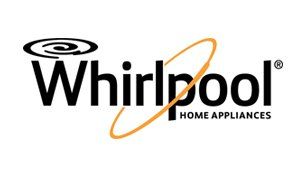

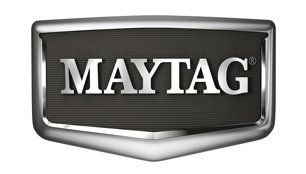
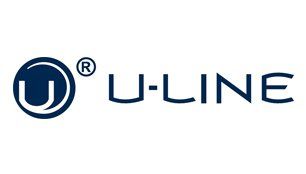
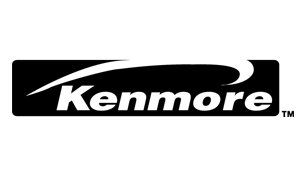
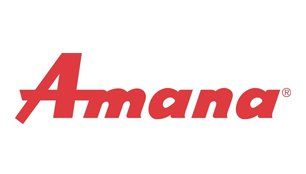
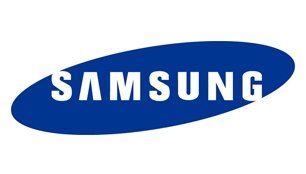
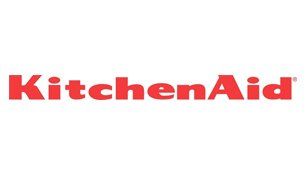


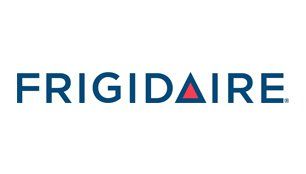

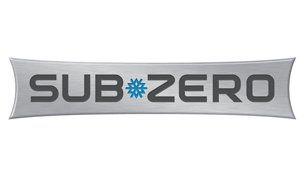
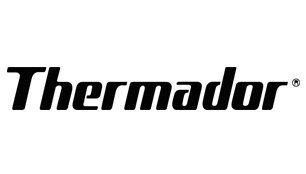
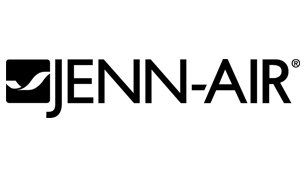
Share On: